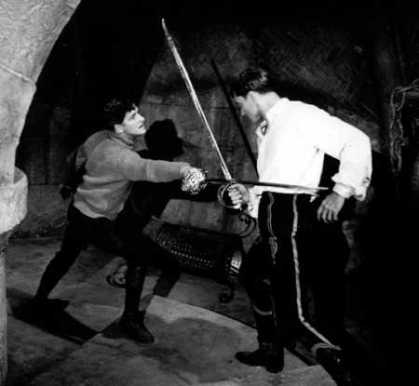"The unbought grace of life"
Question: Is Edmund Burke's famous appeal to chivalry and gallantry, "the last enchantments of the Middle Age, breathing with an incomparable melancholy and resignation", or does his entire stave rank with the most "preposterous and empurpled sentimentality ever committed to print"? "It is now sixteen or seventeen years since I saw the queen of France, then the dauphiness, at Versailles; and surely never lighted on this orb, which she hardly seemed to touch, a more delightful vision. I saw her just above the horizon, decorating and cheering the elevated sphere she just began to move in,—glittering like the morning-star, full of life, and splendour, and joy. Oh! what a revolution! and what a heart must I have to contemplate without emotion that elevation and that fall! Little did I dream when she added titles of veneration to those of enthusiastic, distant, respectful love, that she should ever be obliged to carry the sharp antidote against disgrace concealed in that bosom; little did I dream that I should have lived to see such disasters fallen upon her in a nation of gallant men, in a nation of men of honour, and of cavaliers. I thought ten thousand swords must have leaped from their scabbards to avenge even a look that threatened her with insult. But the age of chivalry is gone. That of sophisters, economists, and calculators, has succeeded; and the glory of Europe is extinguished for ever. Never, never more shall we behold that generous loyalty to rank and sex, that proud submission, that dignified obedience, that subordination of the heart, which kept alive, even in servitude itself, the spirit of an exalted freedom. The unbought grace of life, the cheap defence of nations, the nurse of manly sentiment and heroic enterprise, is gone! It is gone, that sensibility of principle, that chastity of honour, which felt a stain like a wound, which inspired courage whilst it mitigated ferocity, which ennobled whatever it touched, and under which vice itself lost half its evil, by losing all its grossness."
"It is now sixteen or seventeen years since I saw the queen of France, then the dauphiness, at Versailles; and surely never lighted on this orb, which she hardly seemed to touch, a more delightful vision. I saw her just above the horizon, decorating and cheering the elevated sphere she just began to move in,—glittering like the morning-star, full of life, and splendour, and joy. Oh! what a revolution! and what a heart must I have to contemplate without emotion that elevation and that fall! Little did I dream when she added titles of veneration to those of enthusiastic, distant, respectful love, that she should ever be obliged to carry the sharp antidote against disgrace concealed in that bosom; little did I dream that I should have lived to see such disasters fallen upon her in a nation of gallant men, in a nation of men of honour, and of cavaliers. I thought ten thousand swords must have leaped from their scabbards to avenge even a look that threatened her with insult. But the age of chivalry is gone. That of sophisters, economists, and calculators, has succeeded; and the glory of Europe is extinguished for ever. Never, never more shall we behold that generous loyalty to rank and sex, that proud submission, that dignified obedience, that subordination of the heart, which kept alive, even in servitude itself, the spirit of an exalted freedom. The unbought grace of life, the cheap defence of nations, the nurse of manly sentiment and heroic enterprise, is gone! It is gone, that sensibility of principle, that chastity of honour, which felt a stain like a wound, which inspired courage whilst it mitigated ferocity, which ennobled whatever it touched, and under which vice itself lost half its evil, by losing all its grossness."
 Vice-Regal Saint:
Vice-Regal Saint: 








































.gif)

.gif)















































































































3 comments:
Can I answer with a question? Are you a monarchist, or a republican? Therein lies the truth.
So you believe it's a frame of mind thing, that it could be either or depending on your mood or outlook. Burke's phrases are graceful and arresting, but they could also be seen to reflect "the moist, vapid effusions of the Diana cult". But then again, not really, not at all, given that what Burke was talking about was a rather stoic and ennobling ideal compared to the mush and vulgarity of modernity.
The truth is it will live forever, for it is full of the most Christian, manly, inspirational sentiment and - as our nations presently go to hell - much prophetic value too. There was never anything chivalric about tabloid-reading Diana worshipers. Any half decent knight, momentarily transposed to our time, would find it hard not to take up his joust and run a few of them through, just to repay them for all their paganism.
Take "[t]he unbought grace of life" - how, in our age of reality TV and yoof "respect", we all need it back! It is in many ways the social equivalent of "that service which is perfect freedom". If the stabbers of South London could learn from the swordsmen of South Camelot that it is infinitely more satisfying to submissively tip your hat to the elderly, rather than decapitate them, we would be getting somewhere. For obedience is not slavery. That is one of the greatest lies of our time. It is worth gusto; it ennobles all.
Post a Comment